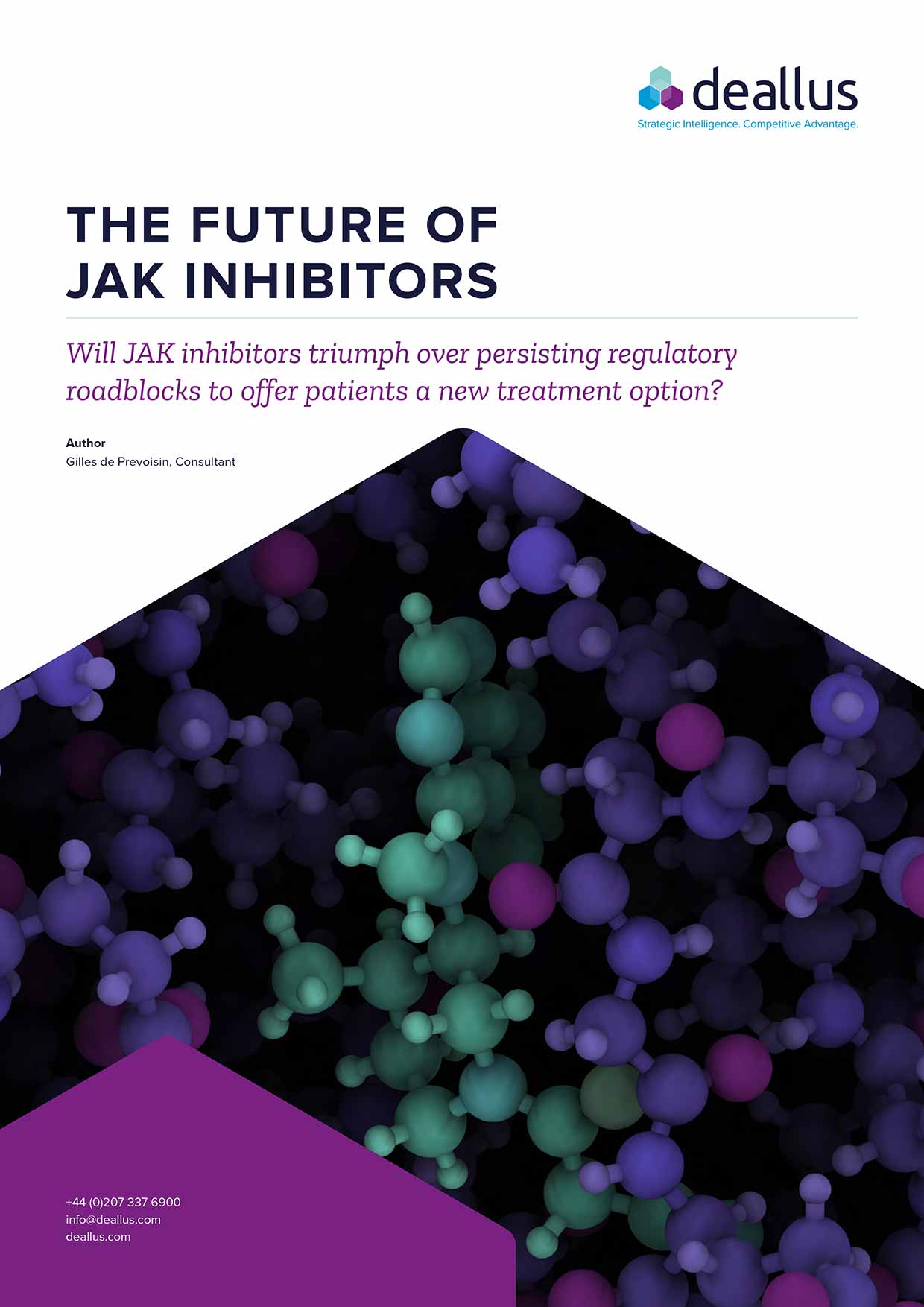The Future of JAK Inhibitors
Will JAK inhibitors triumph over persisting regulatory roadblocks to offer patients a new treatment option?
From blockbuster drugs to black box warnings, Janus kinase inhibitors (JAKs) have seen dramatic highs and lows in their journey to market access across the last few years. This innovative drug class has faced dizzying twists, turns and falls within the landscape of safety acceptability. Yet despite the hurdles JAKs are facing, pharma’s conviction in their potential to generate a paradigm shift in patient care means R&D activity and interest remains undaunted.
Driven by the sheer scale of the Immune-Mediated Inflammatory Diseases (IMIDs) treatment market and clear scenario of unmet patient need, the JAKs pipeline currently comprises no fewer than 45 therapeutic candidates. 1 In different stages of development, they are in a whole slew of IMID fields – and their journey is far from over.
JAK inhibitors are an oral class of therapeutics exciting to biopharma companies, investors, patients and physicians alike. Clinical results promise patients in multiple indications effective and more convenient treatment options. The first assets to enter the market, with approval for Rheumatoid Arthritis (RA), were tofacitinib (now also approved for Psoriatic Arthritis and Ulcerative Colitis) and baricitinib, followed by upadacitinib (RA).
First-generation JAKs have proven spectacularly efficacious both in clinical trials and in the clinic in treating inflammatory and autoimmune diseases – however, nearly all are facing an imbalance between safety and efficacy.
The result? JAKs’ rise in market success – for now – has hit unexpected turbulence.
You may also be interested in…
GlobalData announces acquisition of market leading competitive intelligence solutions provider Deallus
GlobalData Plc, a London-based leading data and analytics company, has completed the acquisition of Deallus from private equity firm Archimed. Deallus is a London-based market-leading competitive intelligence solutions provider focused on the global life sciences sector.
Uncertainty is here to stay
Another turbulent year is ending, marked by economic, geopolitical, and technological shifts. With six decades behind me, I embrace this uncertainty as the norm. What does this mean for corporate decisions, especially in Pharma?
Season’s Greetings
From all of us at Deallus we wish all our clients, colleagues and friends a very peaceful and prosperous festive season.
The Migraine unveiling: Bringing the invisible disability to light
Globally, headache disorders affected approximately 40% of the population, or 3.1 billion people in 2021. A migraine attack goes beyond a severe headache; it is a constellation of symptoms that may include neck pain, nausea, dizziness, visual disturbances and sensitivity to light, sounds and smell among a variety of other manifestations.





